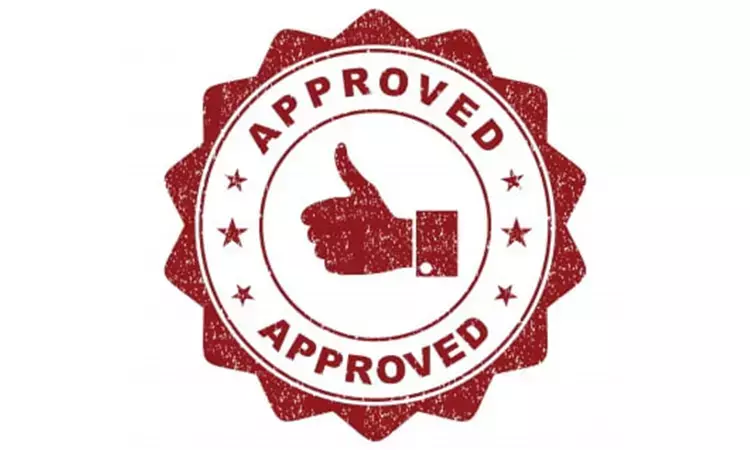- Home
- Medical news & Guidelines
- Anesthesiology
- Cardiology and CTVS
- Critical Care
- Dentistry
- Dermatology
- Diabetes and Endocrinology
- ENT
- Gastroenterology
- Medicine
- Nephrology
- Neurology
- Obstretics-Gynaecology
- Oncology
- Ophthalmology
- Orthopaedics
- Pediatrics-Neonatology
- Psychiatry
- Pulmonology
- Radiology
- Surgery
- Urology
- Laboratory Medicine
- Diet
- Nursing
- Paramedical
- Physiotherapy
- Health news
- Fact Check
- Bone Health Fact Check
- Brain Health Fact Check
- Cancer Related Fact Check
- Child Care Fact Check
- Dental and oral health fact check
- Diabetes and metabolic health fact check
- Diet and Nutrition Fact Check
- Eye and ENT Care Fact Check
- Fitness fact check
- Gut health fact check
- Heart health fact check
- Kidney health fact check
- Medical education fact check
- Men's health fact check
- Respiratory fact check
- Skin and hair care fact check
- Vaccine and Immunization fact check
- Women's health fact check
- AYUSH
- State News
- Andaman and Nicobar Islands
- Andhra Pradesh
- Arunachal Pradesh
- Assam
- Bihar
- Chandigarh
- Chattisgarh
- Dadra and Nagar Haveli
- Daman and Diu
- Delhi
- Goa
- Gujarat
- Haryana
- Himachal Pradesh
- Jammu & Kashmir
- Jharkhand
- Karnataka
- Kerala
- Ladakh
- Lakshadweep
- Madhya Pradesh
- Maharashtra
- Manipur
- Meghalaya
- Mizoram
- Nagaland
- Odisha
- Puducherry
- Punjab
- Rajasthan
- Sikkim
- Tamil Nadu
- Telangana
- Tripura
- Uttar Pradesh
- Uttrakhand
- West Bengal
- Medical Education
- Industry
DCGI nod to algo-based Covid-19 testing tool Tapestry developed by IIT Bombay scientist

Mumbai: Bengaluru-based tech startup Algorithmic Biologics has received regulatory approvals to launch its COVID-19 testing method that can help scale up testing for the deadly virus infection at half the prevailing cost and one-tenth of the time.
Called Tapestry, the new testing tool is developed by the startup launched by IIT-Bombay professor Manoj Gopalkrishnan.
It enables the safe reopening of places of work and education as it is affordable and can be used frequently using a single round quantitative pooling algorithm with the gold-standard RT-PCR test, the professor who teaches machine learning at the IIT- Bombay told PTI on Tuesday from Hyderabad.
Gopalkrishnan said Tapestry, which has been under development since last March, has just been cleared by the Drugs Controller General (DCGI) for commercial use as a non-regulated medical device and has also been registered with the Central Drugs Standard Control Organization.
The professor said he has tied up with two labs for the testing -- Delhi-based LabAssure and Bengaluru-based Dhitiomics for commercial use and is in talks with many other labs for a nationwide launch.
Tapestry lowers testing time to four hours, which is just a tenth of the present time taken by the traditional RT-PRC tests, while the cost is under 50 per cent of the lowest such test at around Rs 250, he said.
The tool has undergone sampling tests on over 8,000 people since last July at the Institute for Stem Cell Science & Regenerative Medicine, Bengaluru, and the Centre for Cellular & Molecular Biology in Bengaluru.
Clinical trials were carried out at Tata Memorial Centre from last August, while field trials were held on the students of the International Institute of Information Technology in Hyderabad from this February, said Gopalkrishnan.
He has a PhD from the University of Southern California and electrical engineering from IIT Kharagpur and has been teaching at the IIT-Bombay since 2008.
Tapestry, also validated by Harward Medical School, was invented at the IIT-B and taken forward with the help of leading research institutions like the National Centre for Biological Sciences, Institute for Stem Cell Science & Regenerative Medicine, Tata Memorial Centre, Centre for Cellular & Molecular Biology and a few reputed international research labs.
The tool works like a compression algorithm for molecular testing and uses samples from different individuals, which are mixed into pools using a code.
Each sample is sent to three pools, ensuring testing in triplicate and accurate results. Individual-level results are recovered by looking at the pattern of the pooling results and applying a decoding algorithm, said the 40-year-old professor.
Read also: Bharat Biotech Covaxin efficacy 77.8 percent, gets CDSCO panel okay
Ruchika Sharma joined Medical Dialogue as an Correspondent for the Business Section in 2019. She covers all the updates in the Pharmaceutical field, Policy, Insurance, Business Healthcare, Medical News, Health News, Pharma News, Healthcare and Investment. She has completed her B.Com from Delhi University and then pursued postgraduation in M.Com. She can be contacted at editorial@medicaldialogues.in Contact no. 011-43720751


